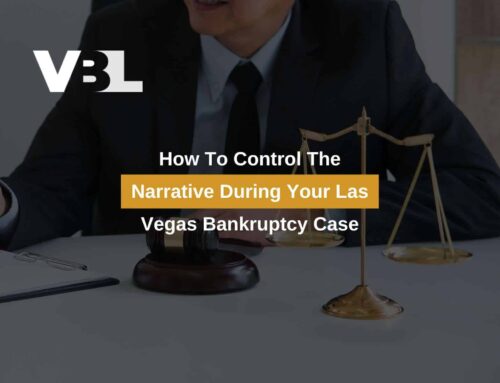How Long Do I Need To Live In Nevada To File Bankruptcy Here?
What To Know About Bankruptcy If You’ve Recently Moved To Nevada
Sometimes debt problems come to a head when you are planning to or recently have moved interstate. If so, there are certain issues you will need to consider before filing a bankruptcy petition with the courts. If you haven’t lived in Nevada long enough, you might not be able to enjoy the full benefits of filing here, or you might not even qualify to file here at all. In that case, you will need to determine in which state(s) you are eligible to file, and which has laws that best protect your financial interests. Call our office or fill out our online form for your free consultation with one of our Nevada bankruptcy lawyers to determine your qualifications.

Residency Requirement
Each state has its own residency requirements for certain types of legal cases. This represents how long you must be living in an area to be eligible to file your case in that area’s courthouse. Nevada’s bankruptcy residency requirement is 180 days, or approximately 6 months. If you need to file bankruptcy now but haven’t lived here for 180 days yet, you will need to declare bankruptcy in the state in which you lived previously. If you can’t meet that state’s residency requirement either, you will usually then file in the state in which you spent the majority of the previous 180 days starting from 2 years before your filing.
Bankruptcy Exemptions
While you only need to reside in Nevada for 180 days to qualify to file bankruptcy here, you will need to live here longer if you want to use Nevada’s bankruptcy exemptions. Unless you have lived here for 730 days or longer, you will need to use your previous state’s exemptions when filing bankruptcy. You also must have purchased and owned your Nevada home for at least 1,215 before filing your bankruptcy petition if you would like to use Nevada’s homestead exemption. Nevada, unlike some states, does not offer bankruptcy filers the option of using federal bankruptcy exemptions instead of state bankruptcy exemptions.
If you don’t know how bankruptcy exemptions work, you might not understand how crucial using Nevada’s bankruptcy exemptions (versus your previous state’s) could be to your case. They are especially relevant when you file Chapter 7 bankruptcy. As you may know, Chapter 7 bankruptcy clears away most types of unsecured debts without repayment to your creditors. But to enjoy such enormous benefits, you must either only own property under certain value limits or be okay with the trustee seizing unprotected assets in your bankruptcy. Any unprotected that your trustee seizes will be sold and used to pay your creditors. The trustee will also get a percentage of the sale, so they have a strong incentive to investigate unprotected assets. In a Chapter 13 bankruptcy, the excess equity of any assets will need to be paid towards your reorganization payment plan.
For many categories, Nevada has favorable exemptions compared to other states and the federal bankruptcy exemptions. For example, the Nevada homestead exemption is $605,000, while the federal homestead exemption is $27,900. Nevada’s motor vehicle exemption is $15,000, compared to the federal motor vehicle exemption of $4,450. There is a federal wildcard exemption, that can be used on any asset the filer selects, of $1,475 plus up to $13,950 of any unused homestead exemption. As you can see, qualifying for Nevada’s bankruptcy exemptions can protect much more of your property than other sets of exemptions.
Multiple Bankruptcies
No matter which state you live in, there will always be restrictions on discharging your debt in bankruptcy again after a previous case. All of this will depend on the chapter you filed previously, and the chapter you wish to file now. Let’s start with the assumption that your first bankruptcy was a Chapter 7. If so, you will need to wait 8 years from your first case’s filing date until you can file Chapter 7 bankruptcy again. You only need to wait 4 years if you want to file your second case as a Chapter 13. If you start with a Chapter 13 bankruptcy, you will need to wait 2 years to file another Chapter 13. You will need to wait 6 years if you want your second case filed as a Chapter 7. However, even if it’s too soon to discharge your debts in bankruptcy again, there may be advantages to filing a bankruptcy petition. You might even benefit from what is known as a “Chapter 20” bankruptcy. To learn more, schedule your free consultation with our Nevada bankruptcy firm.
Buying a Home After Bankruptcy
If you haven’t yet purchased a home in Nevada, you may be wondering how filing bankruptcy will affect your ability to do so in the future. You won’t qualify for most home mortgages for 2 years after filing either Chapter 7 or Chapter 13 bankruptcy. However, because a Chapter 13 bankruptcy lasts 3-5 years, you should be eligible to buy a home once your payment plan is complete. A Chapter 13 bankruptcy stays on your credit report for 7 years after your filing date. A Chapter 7 bankruptcy remains on your credit report for 10 years.
It’s true that a bankruptcy filing won’t be a high point in your credit history, but it might actually help your chances of being approved for a mortgage someday. Based on your specific situation, filing bankruptcy could result in little change to your credit score, or even an increase in your credit score. Review your credit report with an attorney to see what kind of changes you can expect after you declare bankruptcy.
Affordable Nevada Bankruptcy Lawyers No Matter Your Situation
If you have moved in recent history, it’s important that you understand how this can affect your potential bankruptcy filing. Even if you’re eligible to file bankruptcy here, your property might not be protected by Nevada’s bankruptcy exemptions. This could be a key factor in your decision to file. For more information, schedule your free consultation with our experienced Las Vegas bankruptcy lawyers by calling our office or filling out our online form.

Las Vegas Bankruptcy Lawyers
LAS VEGAS
7251 W Lake Mead BLVD #300
Las Vegas, NV89128
Office: 702-879-2499
Email: [email protected]
HENDERSON
1489 W Warm Springs Rd. Ste 110
Henderson, NV 89014
Email: [email protected]
















